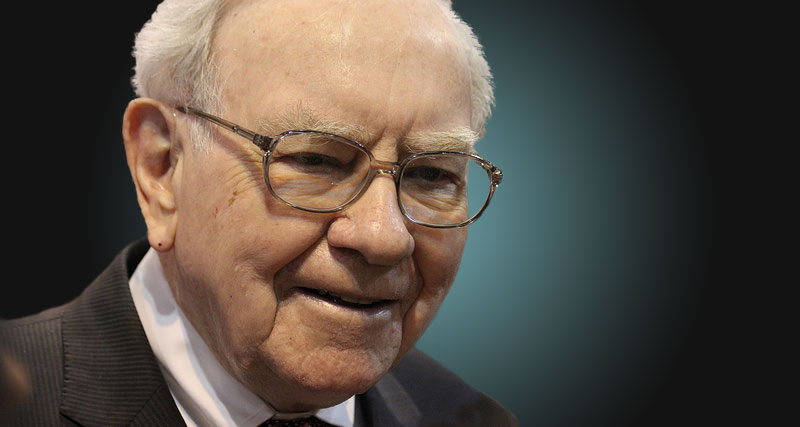Warren Buffett’s deal to provide Home Capital Group Inc. (TSX:HCG) with a new $2 billion loan facility with slightly less onerous terms than its existing one is a big success — at least if Home Capital’s share price is the barometre.
Up more than 20% on June 22, HCG stock has now rallied 217% since it hit a low of $5.68 on April 26. For those who bought shares in early April in the mid-$20s, you are thanking your lucky stars that Berkshire Hathaway Inc. (NYSE:BRK.A)(NYSE:BRK.B) likes rescuing financial services companies.
Home Capital deal better than Goldman Sachs rescue
In a nutshell, if shareholders don’t approve the additional investment by Buffett to buy 24 million shares at $10.30 to go along with the 16 million he’s buying at $9.55, Buffett will own 20% of Home Capital’s stock instead of 38%.
Under the terms of the agreement, if shareholders vote against the second tranche of shares, the 9% interest rate on funds drawn and 1% standby fee for undrawn funds will revert to 9.5% on the drawn funds and 1.75% on the undrawn funds.
Berkshire Hathaway is paying $400 million for 62% of the company on a pre-issuance basis. Assuming it was possible (it’s not) for Buffett to have bought the 40 million shares on the open market, based on its June 21st closing price of $14.94, Buffett’s company would have paid $598 million, or 49%, more than the Home Capital private placement.
That’s not a bad deal, especially if you compare it to his 2008 arrangement with Goldman Sachs Group Inc. (NYSE:GS).
In that deal, Goldman Sachs sold Buffett US$5 billion in perpetual preferred stock paying an annual interest rate of 10% with an equity kicker of 43.4 million warrants to buy Goldman Sachs stock at US$115 per share by October 1, 2013.
At the time of the deal, Goldman Sachs’s stock was trading around US$125.
How much did Buffett make?
On the preferreds, Berkshire made $1.75 billion (includes dividends) over two-and-a-half years. Goldman repurchased them for US$5.64 billion which included a 10% early repayment fee and outstanding dividends.
On the warrants, Buffett and Goldman Sachs amended the deal in 2013. Instead of Buffett forking over the US$5 billion in cash, Goldman issued 13.1 million shares, or the difference between the exercise price of US$115 and the average trading price of its stock in the 10 trading days leading up to the October 1, 2013, deadline.
In total, Berkshire has made $4.7 billion in profits over eight years on a $5 billion bet. That’s good, but not great.
The Home Capital deal
So, instead of preferred shares, Berkshire Hathaway is buying debt, which puts Buffett in a better position should things head south in the future.
The $2 billion loan facility can’t be terminated by Home Capital in the first year. After that, should the company’s situation change, it will be able to end the agreement.
So, if shareholders were to say no to the additional investment, Home Capital would lose out on $250 million in cash, plus it would pay 0.5% in additional interest on the outstanding balance as well as 0.75% more for the undrawn balance.
Home Capital has $1.65 billion drawn on its loan facility. At 10% interest, it pays $165 million annually, $156.8 million at 9.5%, and $148.5 million at 9%.
On the $350 million that’s undrawn, it pays $8.8 million annually at 2.5%, $6.1 million at 1.75%, and $3.5 million at 1%.
Let’s assume the loan facility is terminated in three years and the average outstanding balance is $1 billion.
Home Capital would pay $300 million in total interest assuming the additional investment and $330 million without it.
So, if the additional investment is approved, it will cost Home Capital $700 million for a $2 billion loan facility ($400 million in equity plus $300 million in interest). If not, it will cost the company $483 million for a $2 billion facility ($153 million in equity plus $330 million in interest).
Bottom line
Am I missing something in the fine print?
Except for the $250 million in cash it wouldn’t get from the additional investment, it just might be wise to vote no. It costs the company less money, is less dilutive, Warren Buffett is still a significant shareholder, and Home Capital gets a $2 billion loan facility at cheaper rates than HOOP is currently charging.
Yes, I know you don’t kiss a gift horse in the mouth, but it’s something to think about before September rolls around.








